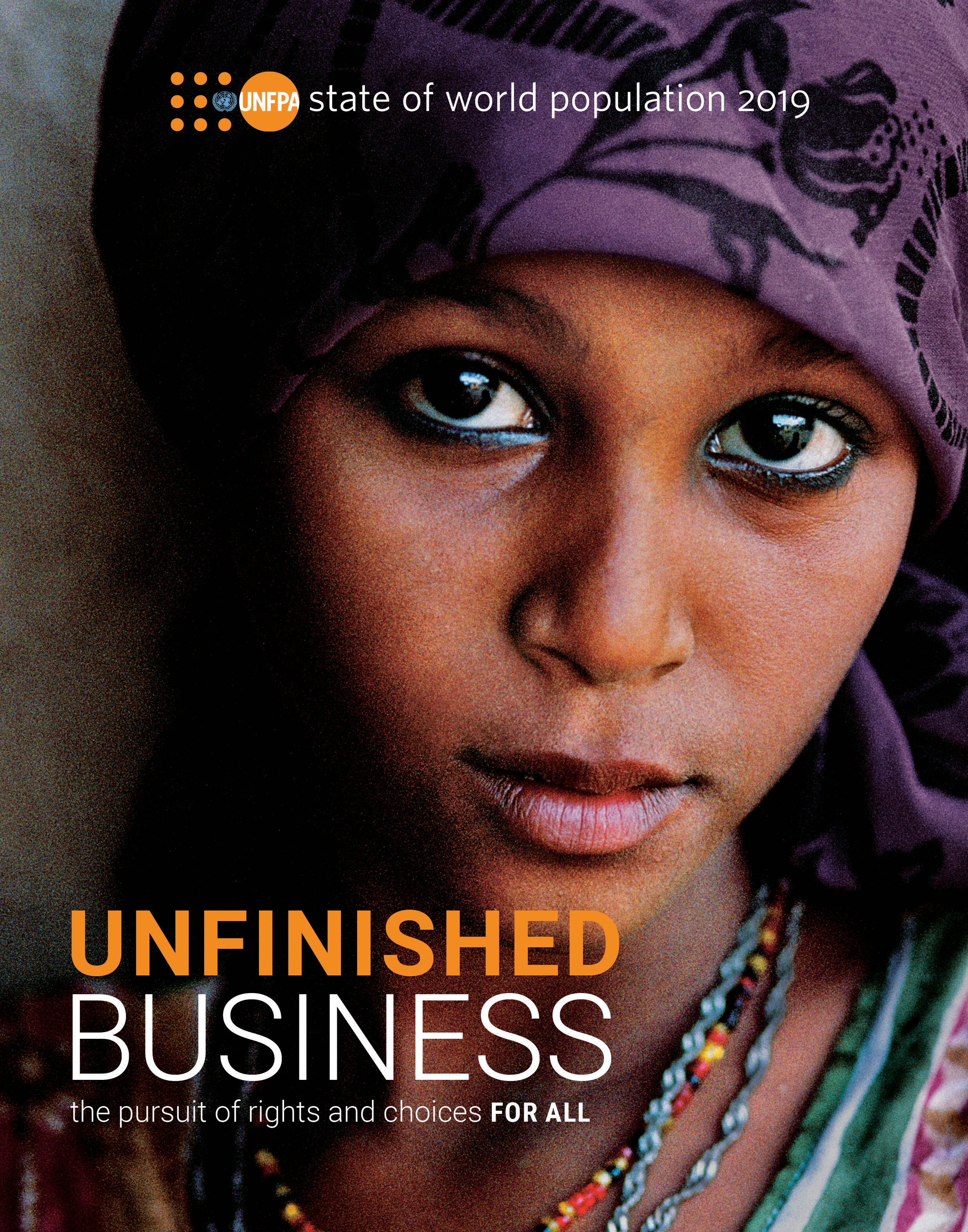10 April 2019, Belgrade - The world population is rising at an unprecedented rate, currently estimated at 7,633 billion , while some states, predominantly Central and Eastern European, are experiencing falling rates, reports the UNFPA State of World Population report 2019 (SWOP) Unfinished Business: The Pursuit of Rights and Choices for All, launched today around the globe.
Looking at population trends in Serbia the number of inhabitants has decreased from 7 822 795 in 1991, to just over 7 million in 2018, according to the Statistical Office of the Republic of Serbia. Statistics show an ageing population with 19.6% of people aged 65 and over, which is higher than the percentage of children between 0 and 14 years of age (14.4%).
Serbia is no exception within the Central and Eastern Europe, including most of the Western Balkan states, where falling population numbers are linked to economic hardship, leading to migration, falling birth rates and ageing population, amongst others. “Investing in policies that expand people’s choices and leave no-one behind strengthens what scientists call “human capital”, the combined skills, knowledge and experiences of a country’s population” writes Alanna Armitage, the Director of UNFPA’s Regional Office for Eastern Europe and Central Asia. “This is essential for economic performance. And it puts countries in a strong position to deal with the consequences of demographic change such as low birth rates and ageing populations.”
The SWOP looks back 50 years, noting that reproductive rights and choices have become a reality for more women than ever. More and better methods of contraception since the 1960s have empowered billions of women to plan their own fertility and futures. Nevertheless, challenges remain. In Serbia a dominant practice for unwanted conception is still use of traditional methods, which are not efficient enough, states the recently adopted National Program on Sexual and Reproductive Health. According to the results of the latest representative study (MICS 5), modern and efficient contraception in Serbia is used by less than one-fifth (18.4%) of women who are married or in a stable partnership relationship, while twice as many use traditional contraception (40%) . This leaves women and girls facing unplanned pregnancies and resorting to induced abortion. Indicators of the situation of sexual and reproductive health are less favourable among vulnerable population groups. These are primarily Roma, but also other population categories, such as people living in poverty, rural population, women with disabilities and people living with human immunodeficiency virus (HIV) (source National Programme for the Preservation and Improvement of Sexual and Reproductive Health of the Citizens of the Republic of Serbia Official Gazette of the RS” No. 120/2017).
Continuing our success is by no means a certainty: rights are still out of reach for too many women. Millions of women are trapped in unequal or abusive relationships. They are not allowed to make decisions about their bodies, health or fertility, and live in constant fear of violence. Disturbingly, one in three women in the Eastern Europe and Central Asia region has experienced some form of physical or sexual violence, often from a partner, a new UNFPA-supported survey found. In Serbia 30 women died as a consequence of domestic violence and 23 000 emergency measures were issued against the perpetrators of domestic violence in 2018, reports the Commissioner for the Protection of Equality of the Republic of Serbia.
As such, on a global level our challenge is to finish the unfinished business of guaranteeing rights and choices for all. The time is now for governments to keep the promises they made at the 1994 International Conference on Population and Development, with special attention to reaching those left behind: the young, the poor and people in rural areas. National legal systems should commit to put people first by upholding their sexual and reproductive rights and protecting them from gender-based discrimination and violence. All health systems should define and deliver an essential package of universally available, integrated, high-quality sexual and reproductive health care services, including adolescents.
“It was 1969. World population reached 3.6 billion, up about 1 billion from only 17 years earlier. Fertility rates worldwide then were about double what they are today… It was in that context that the UNFPA was established to advise developing countries about the social and economic implications of population growth” explains Dr. Natalia Kanem, UN Under-Secretary-General and Executive Director of UNFPA, in the Foreword to the SWOP. “Yet we still have a long way to go before all women and girls have the power and the means to govern their own bodies and make informed choices about their sexual and reproductive health”.
As a way of achieving the goals set by the International Conference on Population and Development (ICPD) agreed by world leaders 25 years ago and Agenda 2030, UNFPA Serbia continues to work in close partnership with government institutions, civil society organizations and individuals. By joining our efforts we can better understand population trends and improve implementation of relevant legal and strategic documents which guarantee universal access to sexual and reproductive health and rights, for all people, regardless of their differences.
Watch the video and download the report




